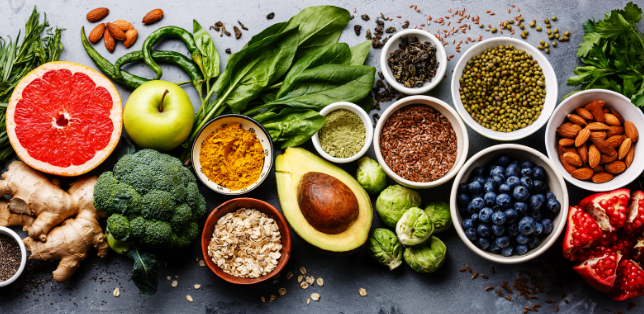By 2025, it is estimated that a quarter of British consumers will be vegan or vegetarian and just under half will identify as flexitarian. [1] Climate change activists, such as Greta Thunberg and David Attenborough, are changing their tact by targeting consumers rather than policy makers - and members of the public are increasingly rising to the challenge. A record 500,000 signed up to the “Veganuary” challenge in January 2021 and pledged to eat only plant-based foods for a month.[2]
Businesses are adapting to changes in consumer consumption. In 2020, the four largest UK supermarkets launched their own vegan range[3] and 1200 new vegan products and menus were launched.[4] In 2021, it is predicted that the UK meat-free market will be worth £658 million.[5]
If your business is looking to extend its current product offering to include vegan and vegetarian suitable products, or if you are already offering these products and looking to expand, here are our top tips for ensuring brand protection:
New brand or sub-brand?
If you are about to launch a range of plant-based, vegan or vegetarian goods under a new brand or sub-brand, it is important to check whether the new trade mark is likely to violate any third party rights before use. We can conduct clearance searches to advise on the risk to use, provide advice on the registerability of trade marks, and help you to secure trade mark protection in your markets of interest.
Extended range of goods?
If you are planning on diversifying your product range using an existing brand, it is important to carry out “top-up” searches to ensure there are no legal issues in using the brand in relation to the extended goods. In addition, it may be necessary to file a new application to ensure you have registered trade mark protection for the new product range.
Our team of Trade Mark specialists can review existing registered rights and advise on any gaps in trade mark protection.
Do your products or services have the vegan or vegetarian “stamp” of approval?
As consumers increasingly adopt “mindful sourcing” of products, having a vegan or vegetarian approved “stamp” on your packaging from a trusted third party can make purchasing decisions easier and quicker for consumers.
A “certification mark” tells consumers what characteristics a product has. This differs from an ordinary trade mark which tells consumers where a product comes from.
The Vegetarian Society own two certification marks, a “Vegetarian Approved” logo and a “Vegan Approved” logo. The certification marks are only licenced for use on goods to food producers that meet stringent criteria. The “Vegetarian Approved” and “Vegan Approved” logos are not only used on food but also soft drinks, alcohol, and in food outlets.
Having a certification mark on your product or service offering can add credibility and promote consumer confidence, particularly where you are new to a market. It may help you stand out in a crowded space.
Is your advertising message misleading?
In the UK there is legislation in place to protect against misleading messaging and advertising. In 2020, the UK’s advertising regulator, banned three of Burger King’s advertisements promoting its “Rebel Whopper” burger because they implied that the burger was suitable for vegans and vegetarians when it was not. Further details about this decision can be found here.
Do you need a licence or to review the terms of your existing one?
If you are a manufacturer who has arrangements with a retailer or distributor, consider whether your existing licence or distribution agreements cover any new trade marks or sub-brands for your range and/or the extended product offering.
If you are a retailer adopting a sustainable practice, you may need your suppliers to adhere to stringent criteria to ensure the goods are suitable for vegans and vegetarians.
How we can help
At Marks & Clerk we have expertise in brand clearance, filing and registering trade marks, and advising on the UK’s Advertising Codes and licensing.
Please get in touch if you would like to discuss any of the issues highlighted in this article.
[1] Sainsbury’s, ‘Future of Food Report’, 15 May 2020, About.Sainsburys.Co.Uk <https://www.about.sainsburys.co.uk/~/media/Files/S/Sainsburys/pdf-downloads/future-of-food-08.pdf> accessed 15 January 2021
[2] D. Carrington ‘Record 500,000 people pledge to eat only vegan food in January’, 5 January 2021, TheGuardian.Com, <https://www.theguardian.com/environment/2021/jan/05/veganuary-record-number-people-pledge-eat-vegan-food-january#:~:text=A%20record%20500%2C000%20people%20have,vegan%20for%20January%20in%202019> accessed 15 January 2021
[3] The Vegan Society., ‘Statistics’, VeganSociety.Com, <https://www.vegansociety.com/news/media/statistics>accessed 18 January 2021
[4] Veganuary, ‘Join the New year’s Revolution’, Veganuary.Com, <https://veganuary.com/> accessed 18 January 2021
[5] The Vegan Society, VeganSociety.Com, <https://www.vegansociety.com/news/media/statistics>accessed 18 January 2021; Mintel’s ‘Meat Free Food’ report, May 2017



